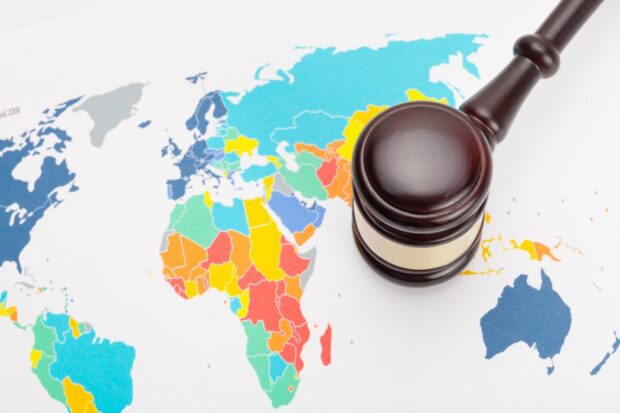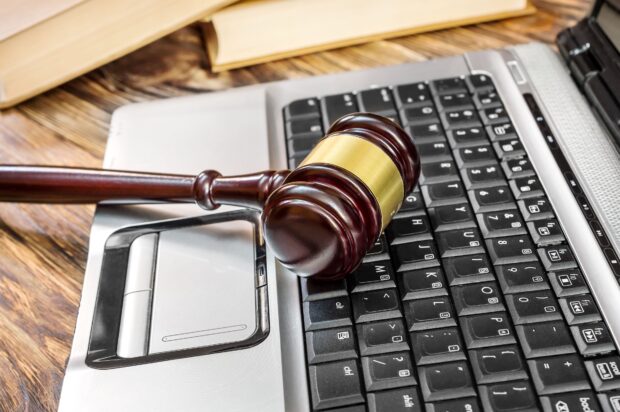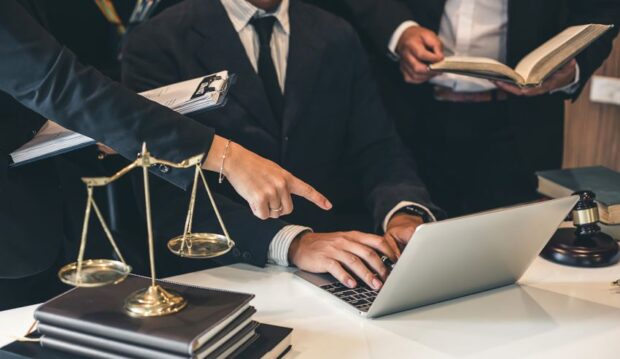The corpus of legislation that controls how technology is used is known as technology law. It is a legislative branch regulating both public and private technological usage. Depending on whether a lawyer works for the local authorities or a private company, the practice of technology law might entail many different things. All societal effects of contemporary technology and communication techniques are covered under technology law.
What exactly is tech law?
Any type of law that deals with the practical application of the scientific method are called technology law. It concerns what the government can do with the data gathered through technological means.
It also concerns the legal responsibilities and rights of private companies and people while using technology. Technology law affects the rights and duties of governmental organisations as well as private persons and enterprises.
What is the origin of technology law?

Federal law in the United States forms a significant portion of technology law. Some laws derive from both domestic and foreign law. A single body of law does not govern all varieties of technology law.
It is a legal field that is expanding and changing quickly. Criminal or civil laws may apply to technology. It can be difficult for law enforcement officers and private organisations to enforce rights and duties.
Technology Law Sources
The following are some sources for technological law:
Federal legislation
The majority of technology legislation in the US is created through federal statutes. Technology law is commercial law to private business owners. National security, however, makes up a sizable portion of technology legislation.
Federal regulations regulate the use of personal data by commercial companies and even the government. Federal technology legislation covers privacy, security, and intellectual property rights.
State laws
State laws may contain both civil and criminal provisions. In most states, it is against the law to use a computer to break the law. Regulations may also forbid utilising a computer to threaten or harass another individual. State technology criminal laws could also apply to financial offences like unlawful use of a debit card or credit card.
As governments struggle to comprehend the boundaries between policing potentially harmful behaviour and free expression, constitutional law questions may affect the constitutionality of state criminal technology legislation.
International law

International law is another source of technology law since concerns relating to public security and crimes involving technology frequently cross international borders. The management of technology usage globally depends on international agreements and treaties. Technology usage that crosses national boundaries is governed by international law.
Civil rights and technology law
Who is allowed to collect and use information about other people is a topic that technology law presents. Technology may be used to collect personal data by both public and commercial entities. They may utilise technology to express themselves freely and interact with others.
What are the restrictions on what people may do with the information of others? is the issue that technology attorneys must respond to. Everyone should be concerned about the problematic issues of governmental authority and individual privacy. Technology attorneys’ practice involves determining the boundaries between civil rights and technology.
Technology law and jurisdictional issues
Due to the fact that technology use crosses international borders, jurisdictional problems frequently arise when applying technology law. Clients must understand where to file their legal claims when problems develop. Often, the solution is intricate.
Jurisdictional difficulties may hamper the investigation and enforcement of technology rights. Lawyers guide their clients through these problems. As they push the boundaries of technological rights and the global enforcement of those rights, they may create new laws and legal precedents in the course of their work.
Who practises technology law?

Government and commercial sector employment is divided between technology lawyers. Technology law refers to making and enforcing technology regulations for employers in the government. The United States government’s day-to-day activities significantly impact by-laws governing privacy and the use of information. In order to create, interpret, and apply technology legislation, government organisations rely on attorneys.
Technology law in the private sector focuses primarily on how corporations employ technology in their operations—business and commercial lawyers specialising in private-sector technologies.
They assist their clients in comprehending technological problems that develop in their line of work. These problems frequently crop up alongside other legal issues. Attorneys in the area often offer complete legal services covering the company, commercial, intellectual property, and technology law.
Additionally, a criminal attorney who practises in private practice may represent a client accused of a felony involving technology, such as computer usage. The lawyer in that situation has to be ready to recognise any potential constitutional law problems.
Why exactly hire a technology lawyer?

edmontonduilawyer.ca Technology attorneys handle complex cases. Their work encompasses business law, constitutional law, and trade. Technology-related attorneys have the chance to work for both established businesses and expanding ones.
They assist in expanding business while resolving legal issues in their line of work. Technology attorneys seek to guarantee that society uses technology responsibly at the same time. They strive to set boundaries for privacy and free expression while assisting their clients in making the most effective use of technology.
The technology sector is undergoing an upheaval. Technology attorneys have the chance to contribute to development and change. All 50 states are home to and employ technology attorneys. Public sector technology attorneys may cluster in Washington, DC, and other government hubs.
Attorneys have the chance to contribute to economic progress and influence how society utilises and interacts with technology through professional legal representation in the field of technology law.
Becoming Familiar with Technological Legislation
Technology law exists at the junction of business law, commerce, and government. Lawmakers, legislators, and legal challenges all work in the legal profession. They may work for private companies assisting them in effectively using and implementing technology, or they may work for the government drafting legislation governing technology usage and monitoring by public institutions. Technology law offers many opportunities, just as technology opens up new possibilities.




